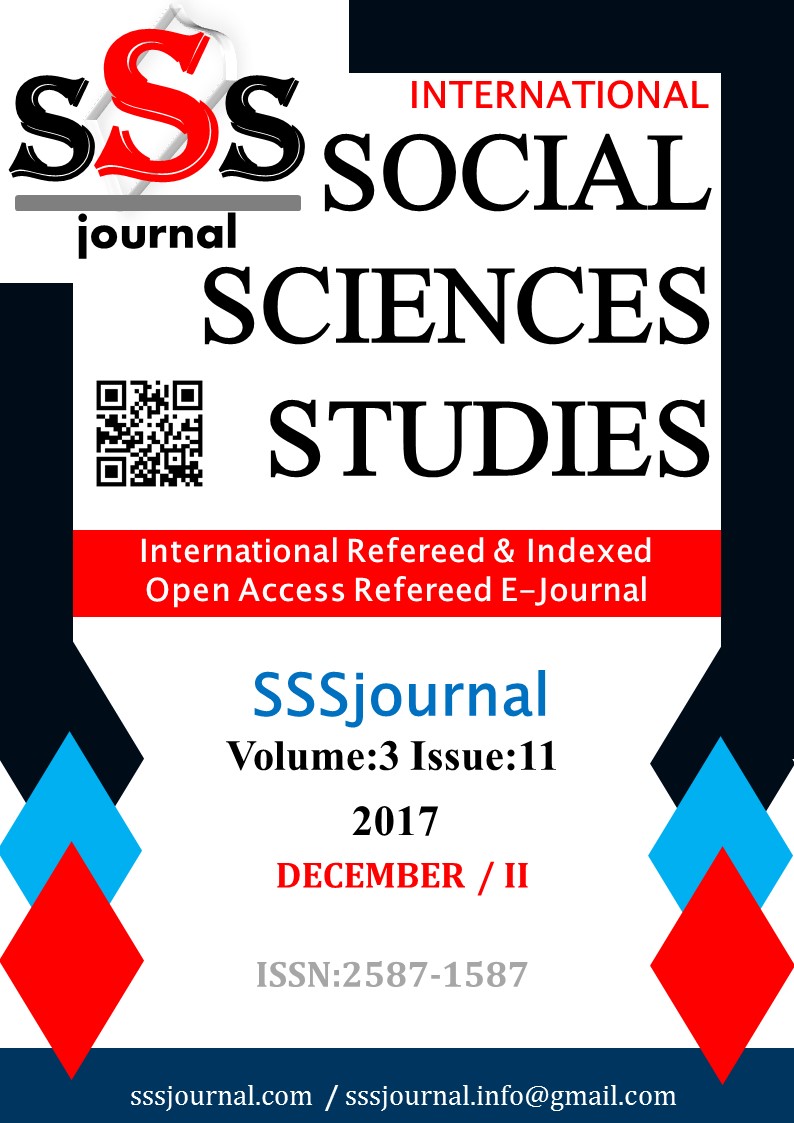Author :
Abstract
Tourism is an important sector for each country due to its economic and socio-cultural benefits. However, it is known that tourism has caused some non-ignorable environmental problems (air, water, noise and visual pollution, climate change, bioturbation etc.) as well as economic and socio-cultural benefits. Since the economic system based on more resources and investments is useless anymore, it has begun to seek a new paradigm towards an answer to the question how can efficiently be benefited from existing sources and changed the system. In this regard, one of the paradigms is “blue economy” revealed by Gunter Pauli in 2010. According to his paradigm, more profits and social capital can be created with less investment. In other words, the paradigm of blue economy is based on an economic model aiming to draw on economy of scope instead of scale, to meet sustainably the needs of the world with current resources. In brief, blue economy looks for an answer relating to how monetising more than one with current resources and meeting the basic needs. Sustainability which has been put forward in order to prohibit the eco-destruction for the sake of consumption and to take measures is also an approach that aims to reduce negative impacts of tourism on nature. In this context, main purpose of the study is to scrutinise importance of ecotourism in Turkey via relationship blue economy paradigm and sustainability. In addition to that, how it should be realized economic, environmental and social capital was also revealed in the study within the context of sustainability.
Keywords
Abstract
Tourism is an important sector for each country due to its economic and socio-cultural benefits. However, it is known that tourism has caused some non-ignorable environmental problems (air, water, noise and visual pollution, climate change, bioturbation etc.) as well as economic and socio-cultural benefits. Since the economic system based on more resources and investments is useless anymore, it has begun to seek a new paradigm towards an answer to the question how can efficiently be benefited from existing sources and changed the system. In this regard, one of the paradigms is “blue economy” revealed by Gunter Pauli in 2010. According to his paradigm, more profits and social capital can be created with less investment. In other words, the paradigm of blue economy is based on an economic model aiming to draw on economy of scope instead of scale, to meet sustainably the needs of the world with current resources. In brief, blue economy looks for an answer relating to how monetising more than one with current resources and meeting the basic needs. Sustainability which has been put forward in order to prohibit the eco-destruction for the sake of consumption and to take measures is also an approach that aims to reduce negative impacts of tourism on nature. In this context, main purpose of the study is to scrutinise importance of ecotourism in Turkey via relationship blue economy paradigm and sustainability. In addition to that, how it should be realized economic, environmental and social capital was also revealed in the study within the context of sustainability.
Keywords
- Ababouch, L. (2015). Fisheries and Aquaculture in the Context of Blue Economy. Feeding Africa Conference
- Ababouch, L. (2015). Fisheries and Aquaculture in the Context of Blue Economy. Feeding Africa Conference Paper, 21-23 October 2015, Dakar, Senegal.
- Australian Blue Paper No 1 (2015). The Blue Economy, 10 Years- 100 Innovations 100 Million Jobs. Prepared by Huxley, A. M., Blue Economy Institute.
- DTO (2017). Rakamlarla Denizcilik Sektörü ve İstatistikler, Deniz Ticaret Odası Yayını, Mart Sayısı,http://www.denizticaretodasi.org.tr/Shared%20Documents/Deniz%20Ticareti%20Dergisi/mart_ek_2017.pdf Kozak, N. and Kozak, M. A. (2000). Genel Turizm Bilgisi. Anadolu Üniversitesi Yayını, Eskişehir.
- Nellemann, C. et al. (2009). Blue Carbon. A Rapid Response Assessment. UNEP, GRID-Arendal, ISBN: 978- 82-7701-060-1
- Pauli, G. A. (2010). The Blue Economy: 10 Years, 100 Innovations, 100 Million Jobs. Paradigm Publications, New Mexico, USA.
- The Future We Want, United Nations Conference on Sustainable Development (Rio+20) Rio de Janeiro, Brazil, 20-22 June 2012, Outcome of the Conference.
- The United Nations Development Programme (UNDP) (2012). The National Strategy of Marine and CoastalProtected Areas of Turkey (draft). PIMS 3697: Türkiye’nin Deniz ve Kıyı Koruma Alanları Sisteminin Güçlendirilmesi Projesi. Teknik Rapor Serisi 21: 52 sf.
- The United Nations Environment Programme (UNEP) (2015). Blue Economy: Sharing Success Stories to Inspire Change. www.unep.org/greeneconomy
- The World Tourism Organization (UNWTO) (2017). Tourism Highlights. 2017 Edition. Madrid: UNWTO.
- TÜSİAD (2014). AB- Brüksel, Brüksel’de Bir Hafta, No:19, http://tusiad.org/tr/tum/item/7675-brukselde-bir- hafta--no--19--12-mayis-2014
- UNEP, FAO, IMO, UNDP, IUCN, WorldFish Center, GRIDArendal (2012). Green Economy in a Blue World Report, www.unep.org/greeneconomy and www.unep.org/regionalseas
- United Nations Sustainable Development Knowledge Platform (2014). Blue Economy Concept Paper, https://sustainabledevelopment.un.org/content/documents/2978BEconcept.pdf
- World Bank Group (2016). Toward a Blue Economy : A Promise for Sustainable Growth in theCaribbean http://documents.worldbank.org/curated/en/278611473448567594/pdf/AUS16344-REVISED-v2-
- World Bank; United Nations Department of Economic and Social Affairs (2017). The Potential of the BlueEconomy : Increasing Long-term Benefits of the Sustainable Use of Marine Resources for Small IslandDeveloping States and Coastal Least Developed Countries. World Bank, Washington, DC. https://openknowledge.worldbank.org/handle/10986/26843
- http://media.unwto.org/press-release/2016-12-05/unwto-underlines-potential-tourism-preserve-biodiversity- cop-13





